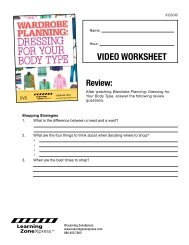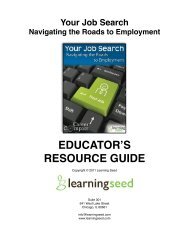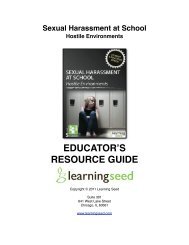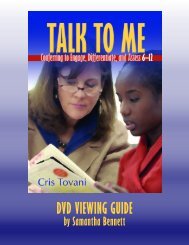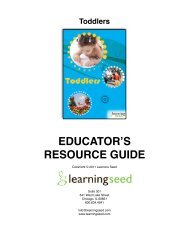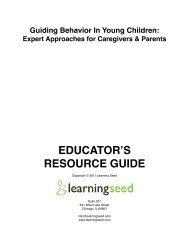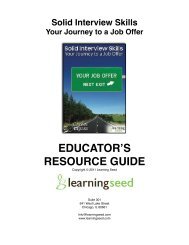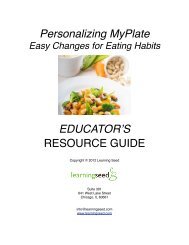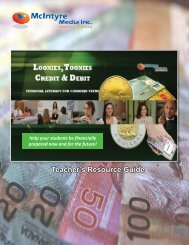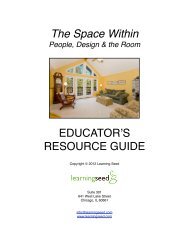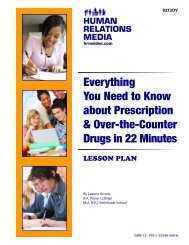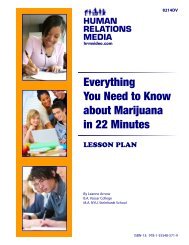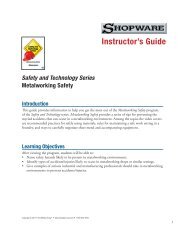EDUCATORʼS RESOURCE GUIDE - Learning Seed
EDUCATORʼS RESOURCE GUIDE - Learning Seed
EDUCATORʼS RESOURCE GUIDE - Learning Seed
You also want an ePaper? Increase the reach of your titles
YUMPU automatically turns print PDFs into web optimized ePapers that Google loves.
A Child's Mind: How Kids Learn Right & Wrong! ! ! ! ! ! ! Glossary<br />
Autonomous! independent in mind, or self-governing.<br />
Cluster schools! schools-within-a-school in Massachusetts and New York focused on moral discussions as a major<br />
part of the curriculum.<br />
Domain Theory" Elliot Turielʼs theory of moral development in which a moral domain, a social domain, and a<br />
psychological domain evolve in a parallel way - all at the same time.<br />
Conventional ! a way of thinking characterized by valuing the views of others - and the understanding that rules<br />
Reasoning! are important to society.<br />
Egocentric! unable to account for another personʼs perspective.<br />
Heteronomous! subject to external law, rule, or authority.<br />
Immanent justice" the expectation that punishments automatically follow wrong-doings.<br />
Internalization ! the developmental change from externally controlled behavior to internally controlled behavior.<br />
Moral development ! the process through which individuals develop attitudes and behaviors toward others, based on<br />
social and cultural norms, rules and laws.<br />
Moral domain ! domain in which morality is concerned with harm, welfare, and fairness.<br />
Objective<br />
responsibility" valuing the letter of the law, no matter what the circumstances.<br />
personal domain! domain made up of choices a child makes: who they choose as friends and activities they decide to<br />
do when they have the choice.<br />
Post conventional<br />
reasoning ! reasoning based on social contracts and individual rights as well as universal ethical principles.<br />
Psychological<br />
domain ! domain in which a child understands who they are as an individual and their thoughts about people<br />
and situations. Eventually it includes understanding the thoughts of other people.<br />
Social <strong>Learning</strong><br />
Theory " theory, of which Albert Bandura was a proponent, that describes learning as an occurrence within a<br />
social context, and states that people learn from one another through observation, imitation, and<br />
modeling.<br />
Theory of mind ! the ability to attribute mental states—beliefs, intents, desires, pretending, knowledge, etc.—to<br />
oneself and others and to understand that others have beliefs, desires and intentions that are<br />
different from one's own.



